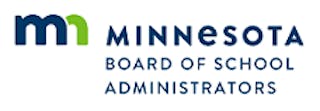K-12 Principal Program Details
In our K-12 Principal License program, you will be equipped, empowered, and inspired toward success in administrative leadership. The program is designed to provide you with the right blend of challenging work and personal support.
Online
Fully Online
You'll complete 100% of your coursework online.
Location: Online
Start Dates: Courses start every 8 weeks. Contact your enrollment counselor for details.
Online with Intensives
You'll complete coursework online, with 1 week of on-campus intensives each year.
Location: St. Paul
Start Dates: Courses start every 8 weeks. Contact your enrollment counselor for details.
*We have opportunities to start throughout the year. Please contact your Enrollment Counselor for more information.
Total Credits
30
Finish in as Few as
2 years
Courses
-
Leadership & Theory Foundations (EDUC800)
Examination of the roles school leaders play as they pertain to ethics and influencing the school community. Analysis of the historical, philosophical and cultural aspects of educational reform. Analysis of leadership simulations using a combination of models for decision making, human communications, conflict management, organizational change, vision building, and school communication Exploration of the balance between personal faith and/or values and professional leadership in an environment characterized by separation of church and state.
4 credits
-
Curriculum, Instruction, & Assessment (EDUC810)
Engagement in contextual learning experiences that apply principles and practices involved in educational institution’s curriculum, instruction, and assessment processes. Development of an effective curricular, instructional, and assessment plan for an organization. Analysis of district-wide literacy initiatives and the leading of school-wide literacy efforts. Understanding of the importance of professional development in curriculum, instruction, and assessment. Identification of research and best practices on integrating curriculum, instruction, and technology.
4 credits
-
Leadership for Inclusive Learning Environments (EDUC825)
Exploration of the dynamics of engaging differences, including cultural, ethnic, religious, gender, ability, age differences, and others. Focus on providing effective leadership in pluralistic systems, including creating a hospitable organizational environment and maintaining relationships with diverse partners and stakeholders. Analysis of one's assumptions, beliefs, behaviors, and capacities with regard to differences.
4 credits
-
Administration of Essential Educational Programs (EDUC830)
Analysis of school policies and procedures to ensure that essential programs are in place. Awareness of how personal belief systems affect decision-making. Examination of school relationships, communication, culture and environment, teachers and student engagement, school supervision, safety, instructional supervision, and student learning.
4 credits
-
Operations and Personnel Administration (EDUC840)
Application of personal and organizational management skills. Synthesis of school/district mission and vision in systemic planning. Development of communication to foster public relations and address organizational politics. Synthesis of the relationship between leadership and conflict management. Analysis of the factors of school cultures. Integration of faith/worldview and core values with leadership strategies.
4 credits
-
Legal Issues in School Administration (EDUC860)
Examination of educational laws and policies, the process by which they are created, and their impact on schools. Analysis of leadership and communication around legal issues and policies, with emphasis on accuracy, clarity, and correct implementation. Evaluation of laws and policies, their application and outcomes, and recommended changes.
4 credits
-
Resource Management (EDUC865)
Examination of constitutional authority for using public funds to support public schools and the tax structure used to generate revenue for schools. Evaluation of the budget process and publications implemented against recognized best practices. Application of emerging practices and essential facets of human resource management. Analysis of the resource allocation pattern of a school aimed toward improved student learning. Exploration of the relationship between personal values/ethical guidelines and resource management practices in schools.
4 credits
-
Principal Internship (EDUC886)
School-based experience of at least 320 hours in one year. 240 hours at one setting and 40 hours at each of the other two levels. Joint supervision of Bethel faculty member and onsite licensed and practicing principal. May be paid or unpaid. Direct experience in administrative duties and synthesis of learning between academic program and administrative needs of host district.
2 credits
How is the License Awarded?
The K-12 Principal License is awarded through the Minnesota Board of School Administrators after completing all required steps, including:
- K-12 Principal Internship: A paid or unpaid school-based experience of at least 320 hours to be completed over 12 continuous months. Students are placed in their local area.
- Electronic Portfolio: A portfolio demonstrating skills learned throughout the program through audio, video, and other forms of electronic documentation.
- License Review Panel: A panel of practicing administrators and program directors reviews each student based on their portfolio, a presentation, and a question and answer session with the panel. A license application process is initiated for students who meet the standards. Students who do not meet the standards will work with their onsite mentor and advisor to reinforce skills that need improvement.
